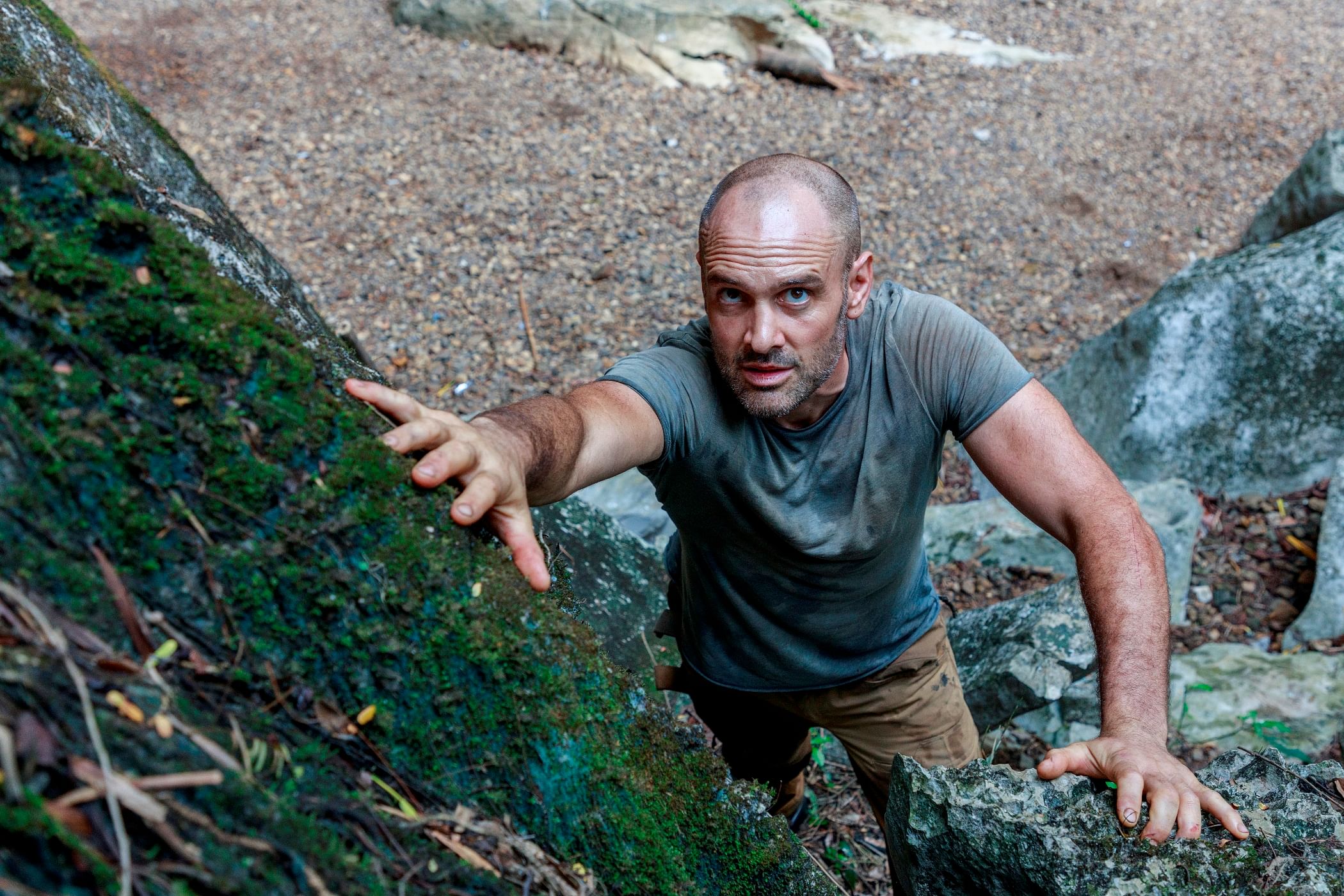
Modern-day explorer Ed Stafford set a new bar in the world of discovery and adventure when he created a Guinness World Record in 2010 by being the first human to walk the entire length of the Amazon river — an expedition that took well over two years! Now a regular on Discovery Channel, he has repeatedly pushed the limits of human endurance, putting himself in the most testing situations and locations, and emerging from them with lessons to share with us all.
This former army man does it again with a new epic adventure series Ed Stafford: Left for Dead, that follows him in his attempt to escape from some of our planet’s most extreme environments. On the move with no basic gear and food, and only his instincts and experience to rely on, he has 10 days to get back to civilisation.
He carried his own camera to shoot his journey, but he did have a team watching from afar, as he traversed Bolivia’s Atacama Desert, Panama’s Darien Gap, the forests of Laos, the coastal mangroves of Madagascar, and Mongolia’s Altai Mountains.
Excerpts from an interview, on what makes him do the crazy things he does:
Why do you constantly challenge yourself to be against the worst kind of odds and circumstances?
When I first set out on various challenges, like walking the Amazon, I really wanted to show that I was tough enough to get through it and say to everyone who doubted me: ‘told you so.’ Bizarrely though, away from all the masculine chest-beating, I think it keeps me young to constantly put myself in situations where I’m challenged, humbled, and where I must think outside the box. It means that I can keep developing as a person, and I’m continually learning new things, meeting new people from all walks of life, and experiencing amazing places in the world.
When you walked down the length of the Amazon, you set a new bar as a modern-day explorer and adventurer. How different do you think your journey was from those who discovered new worlds more than a century ago?
It’s extremely hard to draw comparisons between the two. It would be churlish of me to say that I walked the length of the Amazon completely on my own, as it was important to use local knowledge from natives along the way. That would have been much more difficult a century ago for explorers — there would have been even more difficult language barriers, uneasiness towards newcomers, and anxiety around ‘trespassers’, so to speak.
In the show, what were your biggest challenges? What new learnings?
Left For Dead was almost sculpted to set me a bigger challenge, to drop me into locations where I had to achieve a much larger journey, where it was more dynamic with more decisions and obstacles. I was most nervous about the Darién Gap because of the political instability and the high crime rate, drugs and people trafficking into North America — I was surprised we managed to get filming permits. It was physically demanding, but I was pleasantly surprised by how warm and welcoming the locals were. I’ve had other similar experiences where you expect people to be scary, but they turn out to be really nice. It ended up being a fun trip for me, despite the initial intimidation. In terms of new learnings, I always enjoy the mental challenges that come with these expeditions. Overcoming them is about your mindset and whether it’s frantic or composed enough to deal with situations clearly and precisely.
I was most nervous about the Darién Gap because of the political instability and the high crime rate, drugs and people trafficking into North America — I was surprised we managed to get filming permits. It was physically demanding, but I was pleasantly surprised by how warm and welcoming the locals were.
You are a proponent of solo travel. What sort of tips would you give a young man or woman setting out to explore a new country alone?
I think learning 20 basic words of the local language is important. It’s a common courtesy, but also helps you connect with people who live there and gets you a little further as they’ll treat you with more respect. Even if you get it horribly wrong, at least they have something to laugh at. When travelling alone, I used to find myself getting easily frustrated. Things go wrong, transport fails, or people let you down. It’s easy to get angry when things don’t go the way you want. But, after years of solo adventures and leading expeditions, I now see the folly in such frustrations. It achieves nothing and makes everything feel worse. The best way I’ve found to avoid it is to realise that every journey is made up of good bits and bad bits. They’re all necessary to have an adventure and having nothing go wrong would be boring!
What is your idea of a family vacation?
Any time spent with my family is a great vacation for me. My job often means I spend long periods of time away from them, so any time at home or elsewhere with them is precious. When my son Ranulph was just a few months old, Laura and I took him on his first holiday around Europe in our Land Rover, exploring lots of places, and that was extremely cool. Anywhere we are experiencing new things and embracing the outdoors as a family will be fine by me.